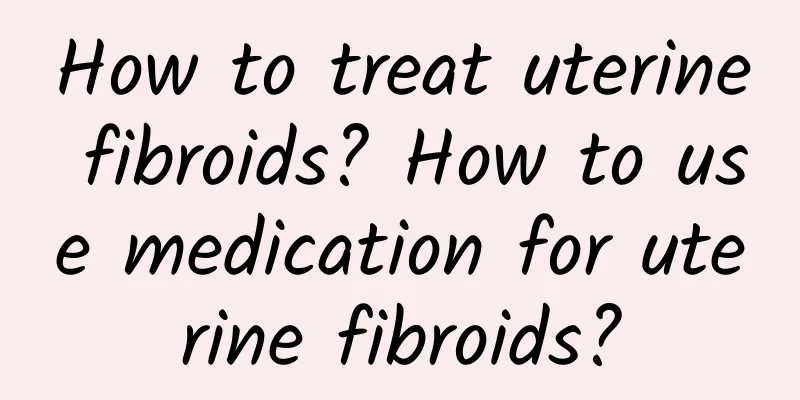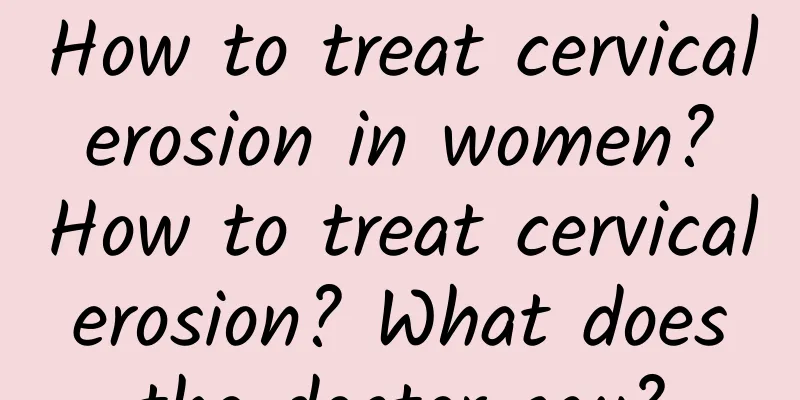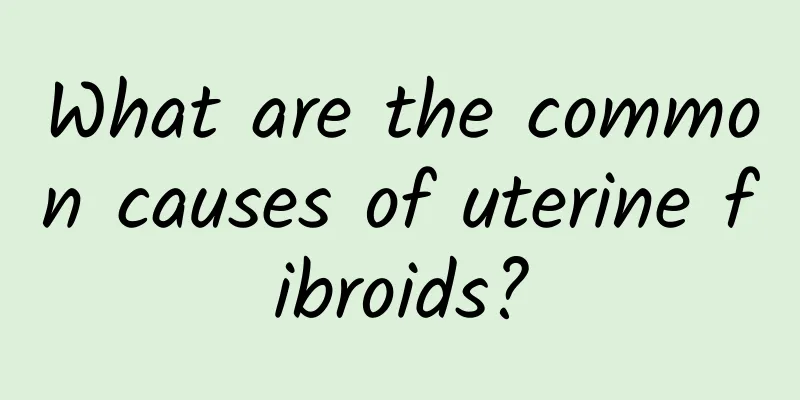How to treat uterine fibroids? How to use medication for uterine fibroids?

|
The incidence of uterine fibroids in women is still relatively high. Some women do not receive timely treatment after becoming ill, which leads to some adverse consequences or even malignant changes. So, how to treat uterine fibroids? 1. Conservative drug treatment. Conservative treatment is mainly for patients with less serious conditions, and is generally based on drug treatment. Conservative treatment requires certain conditions to be met, namely, the tumor does not exceed the size of a 6-week pregnancy; menopausal women are asymptomatic; near-menopausal women can reduce bleeding through non-surgical treatment; patients with uterine fibroids who cannot tolerate surgery may consider conservative treatment. 2. Surgical treatment. There are many surgical methods, including hysterectomy and uterine preservation. Patients who undergo hysterectomy generally have large fibroids, severe symptoms, ineffective conservative treatment, or malignant lesions. Uterine fibroid preservation surgery can be divided into traditional open surgery, minimally invasive surgery, and non-invasive surgery. 3. Treatment with traditional Chinese medicine. Treatment with traditional Chinese medicine can gradually eliminate simple hypertrophy of the myometrium, improve blood circulation of the hyperplastic endometrium, and soften hyperplastic connective tissue, thereby eliminating pain, regulating menstruation, stopping bleeding, and restoring ovarian function, effectively softening the tumor, controlling tumor growth, and eventually dissipating it. 4. Expectant therapy. This is mainly suitable for patients aged 40 to 50 years old who have begun to experience menopause and have mild clinical symptoms. The so-called expectant therapy is what is commonly referred to as observation in clinical practice, which does not use any drugs or other treatment methods. Gynecological internal examination and B-ultrasound examination are performed every 3 months. If the fibroids do not grow fast and have little effect on menstruation, it can be expected that the uterine fibroids will shrink with age and the decline of sex hormone levels. |
<<: How to treat uterine fibroids? How to use medication for uterine fibroids?
Recommend
How long does it take to get your period after an abortion? What are the reasons for not getting your period after an abortion?
Abortion is indeed very harmful to women's bo...
Eliminate fat and prevent aging! Eat 19 kinds of detoxifying foods quickly
In order to detoxify, it is very important to tak...
Diagnostic criteria for hyperprolactinemia
The human body is like a magical machine. When a ...
The main causes of cervical erosion are the following four points
Patients with cervical erosion should all know th...
Can I have a painless abortion less than one year after the surgery?
Generally, painless abortion can be done within o...
Symptoms of early pregnancy need everyone to know
Abortion is the best way to help people solve unw...
What are the dangers of having sex 20 days after an abortion?
If you have sex too soon after surgery, bacteria ...
How to prevent cervicitis
Cervicitis is one of the common gynecological dis...
Exercise has been proven to reduce psychological burden ~ Remember these 4 principles to get rid of depression
The results of a cross-sectional study of more th...
What are the main symptoms of early cervical warts?
We are not unfamiliar with cervical genital warts...
Food traps that people who eat out should avoid! 4 key points to eat for a perfect body shape and lose weight without losing breasts
Master the 4 key points of "low oil, low sal...
What are the symptoms of uterine effusion?
Uterine effusion is also a common disease in wome...
How harmful is medical abortion to the human body? This article will show you how
Medical abortion is a relatively common method of...
Several methods for treating congenital absence of vagina
The principle of treatment for congenital absence...
What are the symptoms of uterine prolapse during pregnancy
Uterine prolapse is one of the gynecological dise...









